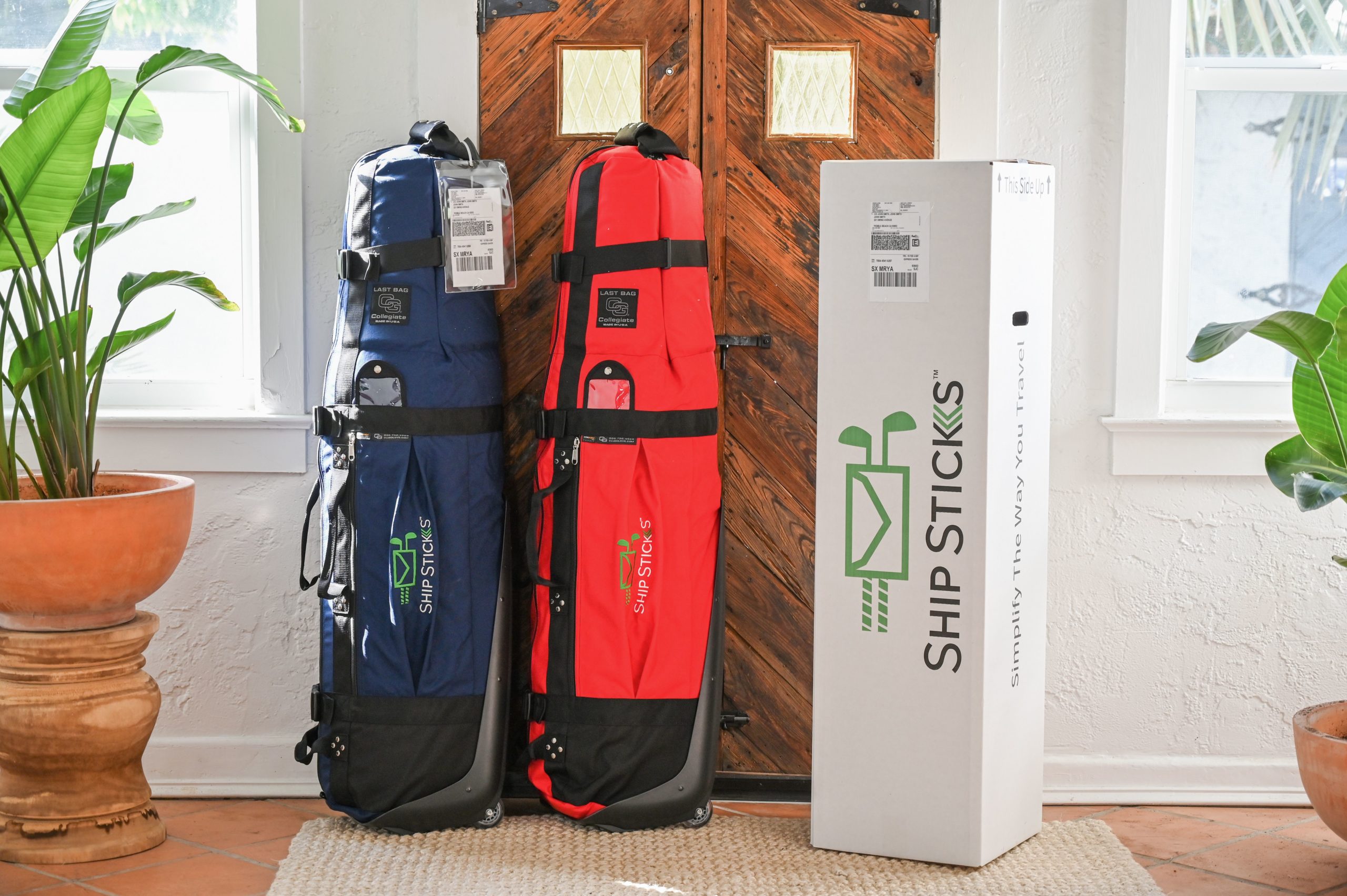The NGF’s Inaugural Top 100 Businesses in Golf: from Acushnet to Yamaha

The inaugural NGF Top 100 Businesses in Golf is part of the National Golf Foundation’s ongoing effort to highlight the vitality, size and diversity of the industry.
Golf, after all, has a healthy and far-reaching footprint in the U.S., with an economic impact of about $84 billion. As such, this initiative was created to recognize and celebrate the most successful, influential and prominent companies, organizations and associations in golf.
The range of golf businesses is vast, from public companies that have numerous brands under their umbrella to mom-and-pop driving ranges that have been family-owned for decades. The industry also runs the gamut in terms of goods and services. The biggest and most successful equipment manufacturers might be instantly-recognizable, thanks to sizeable marketing budgets and clubs in millions of golf bags across the country, while huge turf care supply companies remain relatively unknown to the most hardcore golf fan.
The NGF GOLF 100 is a biennial list – not ranking – that highlights those businesses of fundamental importance to the industry, to both facilities and consumers. In some respects, it is the business equivalent of rankings that identify the top 100 golf courses in the U.S. It’s also a natural extension of the NGF mission: fostering the growth and vitality of the game while providing the research, data and insights that help those who make a living in golf succeed.
It’s no coincidence the NGF GOLF 100 is the featured component of the NGF’s new, improved and more robust communications platform – The Q. The mission of the new website and golf business journal is to better share and communicate the stories of innovation, leadership, success and growth within the industry. The inaugural NGF GOLF 100 compilation, therefore, becomes the perfect strategic fit for the vision of The Q.
The NGF GOLF 100 is not a numerical ranking, but instead a diverse list broken down by various sectors of the golf industry, from apparel and equipment companies to turf equipment and supply companies, course builders and management companies. It’s why you’ll find Top 100 representatives that range from equipment juggernauts Callaway and TaylorMade to turf care behemoth Toro and construction giant Landscapes Unlimited.
(TO VIEW THE FULL LIST, BROKEN DOWN BY CATEGORIES, CLICK HERE.)
Times have changed considerably since the NGF’s founding in 1936, when the nation was still reeling from the Great Depression and many golf-related companies were on the brink of bankruptcy. At the time, six of the biggest ball and equipment manufacturers were persuaded to kick in funds to get the NGF started: Wilson Sporting Goods, Spalding, Hillerich & Bradsby, U.S. Rubber, Worthington Ball Co. and MacGregor Golf.
Today, the NGF is still supported by a myriad of golf-related businesses that represent every segment of the market. These companies – and NGF member courses, clubs, associations, management groups, designers and media – rely on NGF research and resources to support and influence their strategic planning and decision-making. It’s why the vast majority of the Top 100 has NGF membership affiliation to some extent.
The NGF GOLF 100 is limited to businesses (along with organizations or associations) whose primary focus is the golf industry or that have a sizeable and dedicated golf division. Eight distinct weighted criteria were taken into consideration when assessing individual companies or organizations.
Financial success was a key component of the selection process, with companies and organizations evaluated by their annual revenue figures and their overall growth rate and trajectory. But other, more subjective, criteria were also factored in, including assessments on influence throughout the golf industry, innovations, prominence and leadership (both within the sport and a particular category), and contributions to the growth and vitality of the game as well as to the collective societal good.
The NGF GOLF 100 is also limited to the U.S., which is home to almost half of all the world’s golf courses. As a result, the list only includes companies and organizations that are based in the U.S. or do the majority of their golf-related business within the U.S. It’s why you won’t find important organizations such as the Royal & Ancient and the European Tour, a golf simulator business such as South Korea-based GOLFZON, a course management company like Japan-based Accordia or a retailer such as Canada’s Golf Town. The NGF already has an international list of top golf businesses in the works for 2019.

Acushnet, with more than $1.5 billion in annual sales spurred by its famous Titleist and Footjoy brands, may be the biggest player in this category, one that also includes household names like Callaway, Cleveland/Srixon, Cobra Puma, Mizuno, PING and TaylorMade. Six shaft companies and four grip businesses are also in the equipment sector.
(FOR MORE ABOUT GOLF’S EQUIPMENT INDUSTRY AND ITS NGF GOLF 100 MEMBERS, CLICK HERE.)
Golf wouldn’t exist without companies that keep golf courses running on a day-to-day basis, from supplying essential maintenance equipment and golf carts to everyday items like flags, cups and ball washers. It’s why the turf and course supply sector sits just behind equipment with 18 businesses represented in the NGF GOLF 100.
There are a number of well-known names in this category, among them golf cart suppliers Club Car and Yamaha, and companies like Toro and John Deere that supply a large portion of the industry’s mowers and other maintenance equipment. And then there’s a business like Textron, which is prominent in both of those markets with its E-Z-GO and Jacobsen brands. There are also a host of companies that the majority of golfers may not know, but owe a debt of gratitude for the chemicals, fertilizers, pesticides, fungicides and herbicides they produce and provide to keep golf courses healthy. This group within the turf care sector includes big businesses such as Syngenta, Bayer Environmental, BASF Corp., while Rain Bird and Hunter join Toro on the list as the biggest golf course irrigation companies in the game.
And how about the companies that provide essential course accessories like tee markers, flags and flagsticks, bunker rakes, yardage markers, cups and ball-washers? Par Aide and Standard Golf, a pair of decades-old Midwest-based businesses, are the clubhouse leaders in facility-related supplies.
The apparel and accessory category is also well-represented in the NGF GOLF 100, with 13 business-to-consumer companies, among them adidas, Under Armour and Nike (apparel and footwear), Oakley (sunglasses), Imperial (hats) and Sun Mountain (golf bags and outerwear).
The consumer-related media and technology sector includes Golf Channel and publications like Golf Digest, GOLF Magazine and Golfweek/USA Today, high-tech systems like Arccos and Trackman, and a popular club management software provider like Jonas.
Third-party management companies are big business in the golf world, particularly the biggest of the bunch. The top 10 management companies run more than 850 facilities in the U.S., approximately 40% of those under management. Perhaps not surprisingly, there are 13 management companies that crack the NGF GOLF 100, from American Golf to Trump Golf. The golf arm of President Donald Trump’s business empire operates 19 facilities worldwide, including 12 in the U.S., a roster that includes the four-course Doral resort in Miami and seven courses throughout New York and New Jersey.
(FOR MORE ABOUT COURSE MANAGEMENT AND THE SECTOR’S NGF GOLF 100 MEMBERS, CLICK HERE.)
PGA TOUR Superstore and DICK’S Sporting Goods/Golf Galaxy are among five NGF GOLF 100 companies in the retail space, while umbrella companies run by Jack Nicklaus, Greg Norman and Tiger Woods that dip into a multitude of pursuits – from course design and philanthropy to apparel and technology – are included in the versatile Miscellaneous category. That sector also features one of the fastest-growing businesses in the game: the entertainment-driven Topgolf.
Perhaps some of the associations in golf are the most noteworthy businesses of all, in terms of making money, growing the game and influencing the industry. There aren’t many organizations with more clout in the sport than the PGA Tour and the USGA, which both make millions of dollars from corporate sponsorships and television deals while simultaneously activating far-reaching player-development and charitable initiatives.
While golf fans might only see clubs, ball and apparel companies on TV, the NGF GOLF 100 is designed to celebrate all the different business segments that contribute to the game.
Short Game.
"*" indicates required fields
How can we help?
NGF Membership Concierge

"Moe"
Learn From NGF Members
 Ship Sticks Secrets to a Hassle-Free Buddies Golf Trip
Ship Sticks Secrets to a Hassle-Free Buddies Golf Trip
Whether you’re the head planner of your upcoming buddies golf trip or simply along for the ride, we’ve gathered a few easy ways to keep everyone in your group happy.
Read More... Golf Course Turf, Soil and Water Quality Diagnostic Testing
Golf Course Turf, Soil and Water Quality Diagnostic Testing
As humans, we see our primary care physician on a regular basis to proactively evaluate our vital signs. Likewise, a superintendent should perform frequent diagnostic testing on their golf course.
Read More... Unlocking Distance: Launch Conditions and Angle of Attack
Unlocking Distance: Launch Conditions and Angle of Attack
We’ve long known that higher launch and lower spin is a powerful combination for generating consistently long and straight tee shots. A key factor in optimizing launch conditions, one often overlooked, is ...
Read More...




